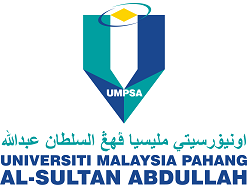Large eddy simulation of passive noise reduction in subsonic jets by using chevrons
DOI:
https://doi.org/10.15282/jmes.18.2.2024.10.0797Keywords:
Large eddy simulation, Jet noise, Chevrons, FW-H method, Sound pressure levelAbstract
Chevrons are widely used passive noise reduction devices that have emerged as an significant breakthrough for aicraft industry in enabling substantial noise reduction without sacrificing thrust. However, the conventional testing of different chevron designs necessitates costly experimental facilities. This challenge can be circumvented through computational validation using CFD. Hence, this study employs a hybrid computational aeroacoustics approach to assess the viability of chevrons as a passive noise reduction technique within free subsonic jets using the commercial CFD software StarCCM+. Two sets of numerical simulations performed with and without chevrons applied at the end of the nozzle were examined. The dynamic Smagorinsky model was utilized to resolve the sub-grid scale stresses in these simulations of turbulent flows, which were run using large eddy simulation at an exit Mach number of 0.75. Using Ffowcs Williams Hawkings acoustic equations and the Fourier transform, the far-field analysis was performed on the acquired flow field to calculate the jet noise distribution in terms of the Sound Pressure Levels (SPL). The simulation results for free jets show good agreement with the published experimental data in terms of capturing the mean flow field and the acoustic levels in farfield. The simulations with chevrons show a reduction of approximately 2-3 dB in the farfield which results from a reduction in low-frequency mixing noise due to the creation of vortices in the shear layers. This result substantiates the capability of the computational aeroacoustics technique to evaluate chevron designs for effectively mitigating jet noise, particularly at high Mach numbers.
References
ICA Organization, “Carbon offsetting and reduction scheme for international aviation,” The International Civil Aviation Organization [Online], 2017. Available: https://www.icao.int/environmentalprotection/CORSIA/-Pages/default.aspx.
J. Singh, S. Rana, A. B. A. Hamid, P. Gupta, “Who should hold the baton of aviation sustainability?” Social Responsibility Journal, vol. 19, no. 7, pp. 1161–1177, 2022.
M. Basner, C. Clark, A. Hansell, J. I. Hileman, S. Janssen, K. Shepherd, et al., “Aviation Noise Impacts: State of the Science,” vol. 19, no. 87, pp. 41–50, 2017.
M. Kaltenbach, C. Maschke, R. Klinke, “Health consequences of aircraft noise,” Deutsches Ärzteblatt International, vol. 105, pp. 548–556, 2008.
L. Leylekian, M. Lebrun, P. Lempereur, “An overview of aircraft noise reduction technologies,” Aerospace Lab, vol. 6, pp. 1–15, 2014.
K. Viswanathan, “Progress in prediction of jet noise and quantification of aircraft/engine noise components,” International Journal of Aeroacoustics, vol. 17, no. 4–5, pp. 339–379, 2018.
M. Sadeghian, M. G. Bandpy, “Technologies for aircraft noise reduction: A review,” Journal of Aeronautics & Aerospace Engineering, vol. 9, no. 1, pp. 1–10, 2020.
C. K. W. Tam, K. Viswanathan, K. K. Ahuja, J. Panda, “The sources of jet noise: Experimental evidence,” Journal of Fluid Mechanics, vol. 615, pp. 253–292, 2008.
T. Suzuki, “A review of diagnostic studies on jet-noise sources and generation mechanisms of subsonically convecting jets,” Fluid Dynamics Research, vol. 42, no. 1, p. 014001, 2010.
M. Coderoni, A. S. Lyrintzis, G. A. Blaisdell, “Large-eddy simulations analysis of supersonic heated jets with fluid injection for noise reduction,” AIAA Journal, vol. 57, no. 8, pp. 3442–3455, 2019.
H. S. Ribner, “The generation of sound by turbulent jets,” Advances in Applied Mechanics, vol. 8, pp. 103–182, 1964.
D. Papamoschou, “New method for jet noise reduction in turbofan engines,” AIAA Journal, vol. 42, no. 11, pp. 2245–2253, 2004.
N. K. Depuru-Mohan, M. J. Doty, “Active chevrons for jet noise reduction,” in 24th International Congress on Sound and Vibration, London, Britain, 2017.
A. Sinha, R. H. Schlinker, J. S. Simonich, R. A. Rebaand T. Colonius, “Toward active control of noise from hot supersonic jets,” in 19th AIAA/CEAS Aeroacoustics Conference, Berlin, Germany, 2013.
J. J. Choi, A. Annaswamy, O. Egungwu, F. Alvi, “Active noise control of supersonic impinging jet using pulsed microjets,” in 43rd AIAA Aerospace Sciences Meeting and Exhibit, Nevada, United States, 2005.
M. Azimi, F. Ommi, N. J. Alashti, “Using acoustic liner for fan noise reduction in modern turbofan engines,” International Journal of Aeronautical and Space Sciences, vol. 15, no. 1, pp. 97–101, 2014.
P. Balakrishnan, K. Srinivasan, “Pipe jet noise reduction using co-axial swirl pipe,” The Aeronautical Journal, vol. 121, no. 1238, pp. 488–514, 2017.
J. Bridges, C. Brown, “Parametric testing of chevrons on single flow hot jets,” in 10th AIAA/CEAS Aeroacoustics Conference, Manchester, Britain, 2004.
M. Doty, B. Henderson, K. Kinzie, “Turbulent flow field measurements of separate flow round and chevron nozzles with pylon interaction using particle image velocimetry,” in 10th AIAA/CEAS Aeroacoustics Conference, Manchester, Britain, 2004.
J. Y. He, Y. B. Xu, “Experimental analysis for jet noise reduction of chevron pylon-based nozzles,” Advanced Materials Research, vol. 1078, pp. 183–186, 2015.
M. R. O. Gara, J. Bin, N. Sinha, “Optimization of hybrid chevron Lobe nozzle inserts for supersonic jet noise reduction,” in AIAA Aviation Forum, Texas, United States, 2019.
G. Cican, M. Deaconu, D.-E, Crunteanu, “Impact of using chevrons nozzle on the acoustics and performances of a micro turbojet engine,” Applied Sciences, vol. 11, no. 11, p. 5158, 2021.
A. M. Hanchinal, V. V. Katti, Impingement of coaxial jet on convex element for confined and unconfined flow, Journal of Mechanical Engineering and Sciences, vol. 14, no. 2, pp. 6652–6662, 2020.
K. Tewari, A. Dewan, V. Narayanan, “Computational fluid analysis of flow losses in globe valves,” Fluid Mechanics and Fluid Power, vol. 1, pp. 19–23, 2021.
A. H. Ariffin, K. A. Ahmad, “Computational fluid dynamic (CFD) simulation of synthetic jet cooling: A review,” Journal of Advanced Research in Fluid Mechanics and Thermal Sciences, vol. 72, no. 2, pp. 103–112, 2020.
Ridwan, M. A. R. Rosnin, A. Aabid, S. A. Khan, J. S. M. Ali, M. A. M. Sapardi, “Effect of expansion level and relief to shear layer in a suddenly expanded flow: A CFD Approach,” Journal of Advanced Research in Fluid Mechanics and Thermal Sciences, vol. 100, no. 3, pp. 202–229, 2022.
K. Hakim, H. Toufik, Y. Mouloudj, “Study and simulation of the thrust vectoring in supersonic nozzles,” Journal of Advanced Research in Fluid Mechanics and Thermal Sciences, vol. 93, no. 1, pp. 13–24, 2022.
M. J. Lighthill, “On sound generated aerodynamically I. General theory,” in Proceeding of Royal Society A, vol. 211, no. 1107, pp. 564–587, 1952.
J. E. F. Williams, D. L. Hawkings, “Sound generation by turbulence and surfaces in arbitrary motion,” Philosophical Transactions for the Royal Society A, vol. 264, no. 1151, pp. 321–342, 1969.
M. E. Goldstein, “A generalized acoustic analogy,” Journal of Fluid Mechanics, vol. 488, pp. 315–333, 2003.
M. E. Goldstein, “Aeroacoustics of turbulent shear flows,” Annual Review of Fluid Mechanics, vol. 16, pp. 263–285, 1984.
S. J. Eastwood, P. G. Tucker, “Hybrid LES—RANS of complex geometry jets,” International Journal of Aeroacoustics, vol. 10, no. 5/6, pp. 659–684, 2011.
A. West, M. Caraeni, “Jet noise prediction using a permeable FW-H solver,” in 21st AIAA/CEAS Aeroacoustics Conference, Texas, United States, 2015.
D. Lindblad, S. J. Sherwin, C. D. Cantwell, J. Lawrence, A. Proenca, M. Moragues Ginard, “Aeroacoustic analysis of a closely installed chevron nozzle jet using the high-order discontinuous Galerkin method, in AIAA Aviation Forum, San Diego, United States, 2023.
D. J. Bodony, S. K. Lele, “On using large-eddy simulation for the prediction of noise from cold and heated turbulent jets,” Physics of Fluids, vol. 17, no. 8, p. 085103, 2005.
J. C. Tyacke, Z.-N. Wang, P. G. Tucker, “LES–RANS of installed ultra-high-bypass-ratio coaxial jet aeroacoustics with flight stream,” AIAA Journal, vol. 57, no. 3, pp. 1215–1236, 2019.
Y. Jin, X. Han, P. Fan, “Compressibility modified RANS simulations for noise prediction of jet exhausts with chevron,” Journal of Applied Fluid Mechanics, vol. 14, pp. 793–804, 2020.
G. A. Brès, S. K. Lele, “Modelling of jet noise: a perspective from large-eddy simulations,” Philosophical Transactions of the Royal Society A, vol. 377, p. 20190081, 2019.
R. R. Mankbadi, “Review of computational aeroacoustics in propulsion systems,” Journal of Propulsion Power, vol. 15, no. 4, pp. 504–512, 1999.
P. Jordan, Y. Gervais, J. C. Valière, H. Foulon, “Final results from single point LDV measurements. Project deliverable D3.4, JEAN – EU Framework Programme, G4RD-CT-2000-00313, Laboratoire d’Etude Aerodynamiques, 2002
A. N. Secundov, S. F. Birch, P. G. Tucker, “Propulsive jets and their acoustics,” Philosophical Transactions of the Royal Society A, vol. 365, pp. 2443–2467, 2007.
A. Uzun, M. Y. Hussaini, “Investigation of high frequency noise generation in the near-nozzle region of a jet using large eddy simulation,” Theoretical and Computation Fluid Dynamics, vol. 21, pp. 291–321, 2007.
U. Piomelli, J. R. Chasnov, “Large-eddy simulations: Theory and applications,” Turbulence and Transition Modelling, vol. 2, pp. 269–336, 1996.
A. Dewan, Tackling Turbulent Flows in Engineering. 1st Ed. Berlin, Germany: Springer Berlin Heidelberg, 2010.
C. Seror, P. Sagaut, C. Bailly, D. Juvé, “On the radiated noise computed by large-eddy simulation,” Physics of Fluids, vol. 13, pp. 476–487, 2001.
A. K. Shukla, A. Dewan, “OpenFOAM based LES of slot jet impingement heat transfer at low nozzle to plate spacing using four SGS models,” Heat and Mass Transfer, vol. 55, pp. 911–931, 2019.
A. K. Shukla, A. Dewan, “Flow and thermal characteristics of jet impingement on a flat plate for small nozzle to plate spacing using LES,” International Journal of Thermal Sciences, vol. 145, p. 106005, 2019.
C. Meneveau, J. Katz, “Scale-invariance and turbulence models for large-eddy simulation,” Annual Review of Fluid Mechanics, vol. 32, pp. 1–32, 2000.
M. Shur, P. Spalart, M. Strelets, A. Garbaruk, “Further steps in LES-based noise prediction for complex jets,” in 44th AIAA Aerospace Sciences Meeting and Exhibit, Nevada, United States, 2006.
N. Andersson, L.-E, Eriksson, L. Davidson, “Investigation of an isothermal Mach 0.75 jet and its radiated sound using large-eddy simulation and Kirchhoff surface integration,” International Journal of Heat and Fluid Flow, vol. 26, no. 3, pp. 393–410, 2005.
P. S. Tide, V. Babu, “Numerical predictions of noise due to subsonic jets from nozzles with and without chevrons,” Applied Acoustics, vol. 70, no. 2, pp. 321–332, 2009.
C. Brown, J. Bridges, “Acoustic efficiency of azimuthal modes in jet noise using chevron nozzles,” in 12th AIAA/CEAS Aeroacoustics Conference, Massachusetts, United States, 2006.
Downloads
Published
Issue
Section
License
Copyright (c) 2024 The Author(s)

This work is licensed under a Creative Commons Attribution-NonCommercial 4.0 International License.






